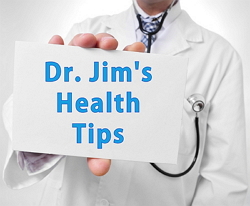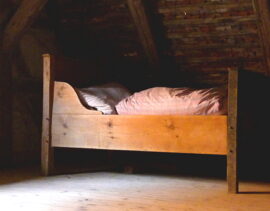Sleep is included not because it is normally classed as a lifestyle mode but because it is a lifestyle determinant. Sleep is another way of enhancing or depreciating life and therefore affects lifestyle. Suitable sleep is an important part of our lifestyles; it is the balm of our mental and physical being. It recuperates us from the daily wear and tear of living.
Sleep is a time of replenishment; it builds up our nervous, immune, bone, and muscular systems. It also, probably because of our recumbent posture, eliminates excess water. During sleep even when dreaming, the brain is idling, normally the brain although only three pounds uses 20% of our energy. Sleep allows the brain to replenish energy (ATP, our body’s gasoline), which makes us awake refreshed and eager to meet a new day.
Insomnia is the prolonged and usually abnormal inability to get enough sleep. It includes being unable to fall asleep, stay asleep, or awakening too soon. As a result of these forms of insomnia, the quality of your sleep is poor, which makes you tired during the day and leads to a need for increased medical care.
Between 10% and 30% of people report sleep problems.1 Obesity is associated with sleep apnea but not with sleep difficulties in general.2
Sleep medicine is a relatively new board certification. The American Board of Medical Specialties recognizes 20 general medical specialties and numerous subspecialties. Sleep medicine is a subspecialty of Anesthesiology, Pediatrics, Family Medicine, Internal Medicine, Otolaryngology, and Psychiatry. Thus, there are a lot of different specialty approaches to sleep problems. Sleep medicine doctors must first pass their general specialty exams and then sleep medicine’s separate exam. Sleep centers are run by these certified specialists; usually the faculty is multispecialty. They can help severe sleep problems often without continued sedatives.
There is a particularly bad form of sleep deprivation that may not be noticed by the sleeper─ sleep apnea. According to the NIH, “Sleep apnea (AP-ne-ah) [Greek=without breath] is a common disorder in which you have one or more pauses in breathing or shallow breaths while you sleep. Breathing pauses can last from a few seconds to minutes. They may occur 30 times or more an hour. Typically, normal breathing then starts again, sometimes with a loud snort or choking sound. Sleep apnea usually is a chronic (ongoing) condition that disrupts your rest from sleep. When your breathing pauses or becomes shallow, you’ll often move out of deep sleep and into light sleep.” It disrupts the sleep of someone nearby.
Sleep apnea is a leading cause of excessive daytime sleepiness. Recurrent insomnia is associated with poor quality of life and increased need for medical care. It is more than just an annoyance. The danger is that sleep apnea increases the risk of arrhythmias, myocardial ischemia/infarction, stroke, and heart failure, all of which may increase mortality risk. 3 Sleep apnea should definitely be evaluated by a sleep medicine doctor. Symptoms are obvious, sometimes disturbingly so, to a loved one close by. Sleep apnea requires professional help.
The National Health Aging Trends Study examined sleep habits in more than seven thousand elderly and found social activities with a good network reduced insomnia by two-thirds, regular exercise by more than half, and both dropped insomnia by even more.”4 So, become an exercising socializer or a socializing exerciser.
Although sleep apnea is common (one in five adults) most do not have serious problems. These mostly intermittent in nature and possibly improved by the following counsel which is a composite from various sources including Harvard, Mayo clinic, and the University of Maryland sleep centers and WebMD.
1. Have a regular routine for going to bed. Retire at the same time and go through the same preparations (possible examples are): set up coffee, take meds, dental hygiene, stretching, or reading.
2. Exercise routines help considerably. Avoid exercise late in the evening.
3. Increase exposure to sunlight during the day and evening.
4. Avoid long naps, particularly after 2:00 pm. Limit naps to 1 nap of less than 30 minutes.
5. Maintain restful temperature in bedroom. Usually on the cooler side.
6. Decrease light and noise exposure as much as possible. Lower the shades or blackout curtains.
7. Limit liquid intake for several hours before bedtime.
8. Be aware of effects on sleep of any new meds.
9. Relax and put off worry until tomorrow. Meditate, ventilate to a loved one if anxious.
10.If serious disruptions continue, see a sleep medicine doctor.
1. Maness DL, Khan M. Nonpharmacologic Management of Chronic Insomnia. American family physician 2015;92:1058-64.
2. Rahe C, Czira ME, Teismann H, Berger K. Associations between poor sleep quality and different measures of obesity. Sleep medicine 2015;16:1225-8.
3. Mansukhani MP, Wang S, Somers VK. Sleep, death, and the heart. American journal of physiology Heart and circulatory physiology 2015;309:H739-49.
4. Endeshaw YW, Yoo W. Association Between Social and Physical Activities and Insomnia Symptoms Among Community-Dwelling Older Adults. Journal of aging and health 2015.


